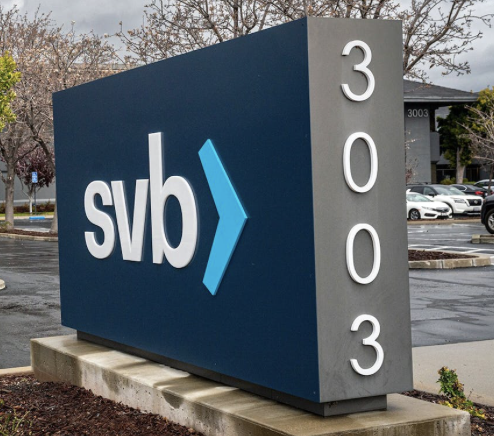WE have all now heard of the collapse of the Silicon Valley Bank (SVB) – the premier tech start-up funding source. SVB’s share price collapsed after it revealed a $1.8 billion loss last Thursday following a $21 billion fire sale of its fixed-income portfolio.
An attempt to raise $2.3 billion to cover those losses failed and the Federal Deposit Insurance Corporation shut it down and took control of customer deposits Friday.
The last 5 days simplified:
— Thomas Massie (@RepThomasMassie) March 14, 2023
A group of wealthy speculators got upset that their money ended up locked into a 10 year obligation at less than 2% return,
so they convinced government it was in everyone’s best interest to help them out of their jam at the expense of everyone else.
The FDIC offered Silicon Valley Bank employees 45 days of employment and 1.5 times their salary. US workers (SVB has overseas branches) also received their annual bonuses on Friday, just hours before FDIC took over the collapsed lender, Axios reported.
One billionaire, Peter Theil, and his Founders Fund, had no cash left in Silicon Valley Bank by Thursday as it all began to unravel. A source told Bloomberg the PayPal cofounder’s fund had moved to close its exposure to the failing bank after running into problems using SVB’s services.
The venture capital group had been engaging in a “capital call” — where it asked investment partners to send funds to invest in a company — by transferring funds to its Silicon Valley Bank account. However, the funds didn’t immediately go through as expected. This gave Thiel a bad case of spidey sense and he pulled all his cash from the bank by Thursday.
SVB became the 16th-largest bank in the country by turning itself into the financial institution of choice for Silicon Valley venture capitalists and the companies they funded. But in doing so, it also made itself exceptionally dependent on the health of the tech industry and on the choices of a relatively small number of VCs and company founders. That dependence is what made the bank so successful. It’s also what helped destroy it. Fast Company
The “rich people” with money in Silicon Valley Bank are the real winners in President Joe Biden’s handling of the California-based bank’s collapse, economist Peter St Onge says.
After the fall of Silicon Valley Bank over the weekend, the Biden administration announced that the Federal Deposit Insurance Corp. will cover all depositors’ money there.
Normally, the Federal Deposit Insurance Corp. is responsible for covering deposits up to $250,000, ensuring that most small businesses and individuals are financially protected from a collapse. But in this case, the FDIC is going far beyond that $250,000 cap to cover every deposit in Silicon Valley Bank, regardless of the amount.
“If the administration gets away with this, then we are going to start moving into a world where bankers, where Wall Street, feels like they can take any risk they like, because this is all going to get bailed out because you’ve got these human shields,” St Onge, a research fellow in economics at The Heritage Foundation, says.
Ultimately, the federal government’s actions to protect Silicon Valley depositors probably will result in higher inflation, St Onge says*. “I think we’re very likely to see a lot more inflation,” he says.
Joe isn’t being entirely accurate here
The way the FDIC works is that the banks all contribute to a fund to share the pain of a bank failure. This massive bailout will mean increased charges for the rest of us. There is no such thing as free money. They are using insurance money to bailout uninsured billionaires/millionaires. Premiums/Banking fees will go up, resulting in everyone who uses a bank to pay for this (aka the taxpayers get screwed again).
Thanks to actions we've taken over the past few days to protect depositors from Silicon Valley and Signature Banks, Americans can have confidence that our system is safe.
— President Biden (@POTUS) March 13, 2023
People’s deposits will be there when they need them – at no cost to the taxpayer.
*Interview with Daily Signal Podcast here.
